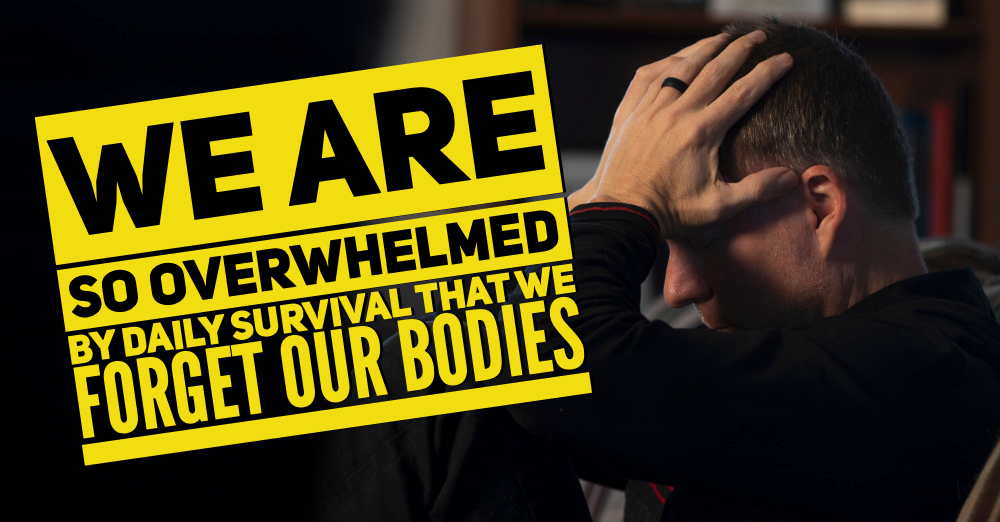
Are you satisfied with your work, or are you tired and discouraged? You may have toxic habits that drain your energy, and it’s time to remove them.
Habits are actions that are part of our routine. They are often actions to stay healthy, for example walking or worrying about what you eat. Sometimes our steps are insufficient and difficult to eliminate because they are deeply in us. Here are some habits that drain your energy:
1 – No longer living in the present. The most toxic habit that drains you is this one. No need to think about the future and forget about the present. Living in the past and not focusing on the present doesn’t make sense. The present is the time to live, without our minds being influenced by what happened in the past or what, we think, will happen in the future.
2 – We are not taking care of your body. Often, we are so overwhelmed by daily survival that we forget our bodies. However, this is not a good habit. If the body is weak, we cannot focus on our minds. We are all one unit and must constantly balance eating, sleeping well, and exercising.
3 – Taking care of other lives. It may seem like a relief to imagine and feel like we are living the life of others when we are not happy with our own, but deep down, it is a habit that only drains energy. If the other person’s life seems better than yours, ignore what this person has gone through to get to that point. Focus your energy on your life and its evolution, not on that of a friend, family member, or neighbor.
4 – Feeding obsessive thoughts. It is terrible when the mind focuses on a situation outside its will. It is difficult to control the mind, but it is impossible. You should meditate and see how your relationship with your mind changes.
5 – Forgetting that you are responsible for your happiness. It may seem selfish, but it’s not. Although it is a great habit to captivate close relationships with those around you, remember that you alone are responsible for your happiness in this world.
––––––––––
✅ Energy “drains”:
1 – Unstable blood sugar levels. What you eat and when you eat it influences your energy level. For example, consuming too many carbohydrates will promote short-term energy production and generate mid-afternoon fatigue. These energy drops make you think you need more food, which leads to more carbohydrates to regenerate (energy drinks, sweets, etc.). They keep their blood sugar level stable at each meal to maintain their energy level. According to the WHO (World Health Organization), adults should consume 50 g of sugar daily.
2 – Lack of hydration. Not drinking enough water causes dehydration, compromising the energy production mechanism, and generating a range of symptoms, such as headaches, muscle cramps, poor digestion, hormonal imbalances, and chronic pain.
3 – Shortness of breath. Many people inhale and exhale short breaths through the rib cage, and do not breathe through the belly. The origin of shallow breathing is prolonged or recurrent periods of stress. Living through the rib cage creates tension in the intercostal muscles, neck, and skull, and reduces the amount of oxygen inhaled. Oxygenation is essential for the production of high-energy levels.
4 – Lack of sleep or poor sleep quality. Some people are functional and efficient on less than six hours of sleep per night. In rare cases, this may be true, but it is physically false. Sleeping less than seven hours and waking up at night will influence energy levels, mood, and cognitive function.
5 – Lack of exercise. Physical activity is essential to improve energy levels. Moving and strengthening your body will improve blood circulation, oxygen, and nutrient and antioxidant transport, improve blood sugar metabolism, reduce stress levels, and improve cognitive functions. With 30 to 40 minutes of physical activity daily (Monday through Friday), you will get good results in energizing your body and mind.
Habits that drain our energy prevent us from reaching our full potential. They are daily behaviors or activities that limit the amount of energy, such as overworking, sleeping fewer hours, not eating healthy, and lack of exercise. Such behavior causes chronic fatigue and mental stress, and negatively affects work performance and other aspects of lifestyle.
You must identify harmful habits to eliminate them gradually, without feeling pressured by an abrupt change in your daily routine. For example, if you are too tired, go to bed early for two weeks until you regain energy.
__________
🔵 SUGAR LEVEL. 🟡 MENTAL ENERGY.
__________
